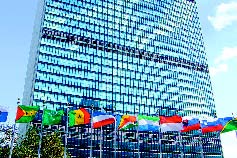In September 2000, world leaders met at the United Nations to sign a historic deal to make the worst forms of global poverty history before the year 2015.
 At the dawn of the 21st century, poor countries agreed a set of actions they would take to put an end to poverty, and rich countries agreed to support them, by reforming world trade and help raise the funds for this new global strategy.
At the dawn of the 21st century, poor countries agreed a set of actions they would take to put an end to poverty, and rich countries agreed to support them, by reforming world trade and help raise the funds for this new global strategy.
Ten years on from this declaration, the economic crisis that started in the richest countries has now spread throughout the world. Developing countries – those least responsible for the crisis – are bearing the brunt of its impact, pushing millions of people into the poverty trap.
With just five years left until the 2015 deadline, the world is at risk of failing in this historic venture. While enormous progress has been made on the eight targets agreed in 2000, the failure by rich countries to honour their aid and trade promises has paired serious question marks about the achievement of the so-called Millennium Development Goals.
In September this year, world leaders will again meet at the United Nations to review the successes, learn from the failures and to adopt detailed action plans to ensure the attainment of the goals.
Ireland has a crucial role to play in this review process, in its own right and as part of the world’s largest trading block, the EU.
Our overseas aid programme is world class and has been shown to make a real and long-lasting difference in the lives of the world’s poorest people. Yet our aid has not reached the levels we promised, and we have not delivered on the reform of the unfair trade rules that keep poor people locked in poverty.
As a small, open economy, Ireland depends on its global reputation as a reliable partner and as a people that keeps its promises. This year is our opportunity to cement that reputation.
It is imperative that we all do our bit to make poverty history. Let’s make sure that when the Taoiseach travels to New York in September, he can do so based on a positive Irish track record and promises delivered for the world’s poorest people.
Hans Zomer
Director, Dóchas











